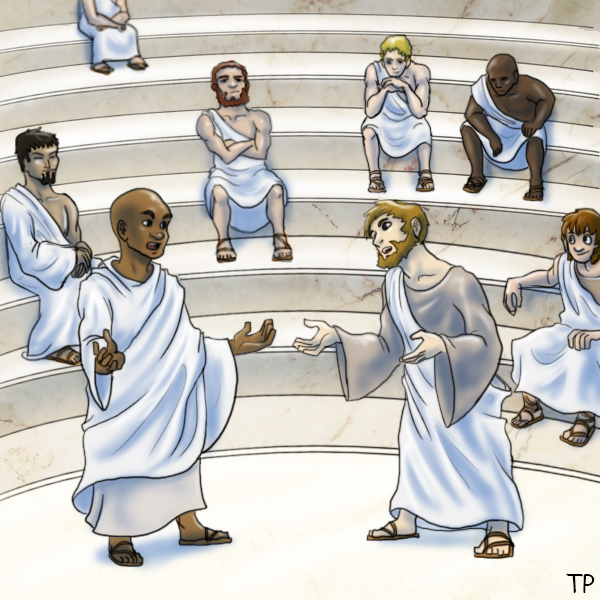
Logic: First PC computer game that tests players' ability to spot and name fallacies of informal
logic in real-life statements by living and dead politicians, government officials, political commentators, radio talk show hosts, news reporters, and celebrities. [A possible way to structure the text version of such a game is by first showing a chunk of text and asking the player if there is a fallacy(ies) of informal logic in it. If there isn't and the player says there is or if there is and the player says there isn't, a buzzer goes off and goes to the next part of the test. Naturally, if there is and the player says there is or if there isn't and the player says there isn't, the game goes onto the next part of the test. If there isn't a fallacy of informal logic in the chunk of text, another chunk of text is shown and the "is there / isn't there" question is asked again. If there is a fallacy(ies) of informal logic in the chunk of text, the player is then asked to click on the sentences that contain the fallacy(ies) and then select from a list of fallacies of informal logic which those highlighted sentences contain.] The game must have at least 1,000 such tests (not including the "there isn't" ones), can be updated with more over the Internet, and it must provide an in-game way for players to submit public statements by public figures and the fallacy of informal logic they commit to the game company for consideration of inclusion in the game. To win this challenge, the game can only be downloaded off of the Internet (no box version for sale at retail stores), sell one million copies (this number can include the sale of versions of the game to other game platforms [see future challenges below]), and the game company must donate at least 10% of gross sales revenue to the Association of Informal Logic & Critical Thinking.
Future Challenges:
1) Audio clips.
2) Video clips.
First version of the game (including both audio and video clips) for:
3) XBox
4) PlayStation
6) Facebook
7) X (formerly Twitter)
8) iPad
9) Tablet PCs
10) iPhone
11) Smartphones
First TV game show based on a version of the game to:
12) Air on a cable TV network.
13) Air on a US cable TV network (e.g., Game Show Network).
14) Be syndicated to TV stations around the world.
First version of the game or TV game show version of the game to make an appearance:
15) On a prime-time drama or sit-com on a cable TV network.
16) On a prime-time drama or sit-com on a US cable TV network.
17) On a prime-time drama or sit-com on a broadcast TV network.
18) On a prime-time drama or sit-com on a US broadcast TV network.
19) In an indie film.
20) In a major motion picture (premiering in at least 4,000 movie theaters).
First informal logic fallacy computer game to get an award for excellence from:
21) Association of Informal Logic & Critical Thinking
22) American Philosophical Association
23) British Philosophical Association
24) European Society for Analytic Philosophy
25) The McGraw-Hill Companies (receiving its Harold W. McGraw, Jr. Prize in Education)
